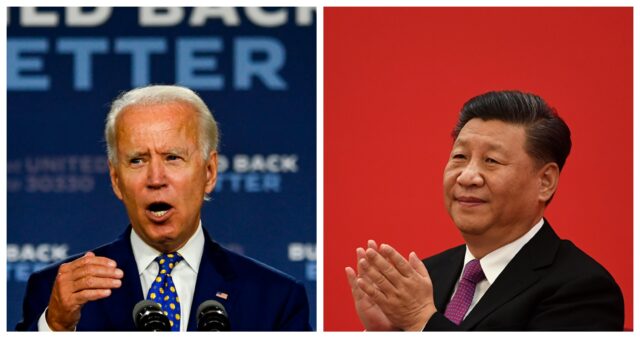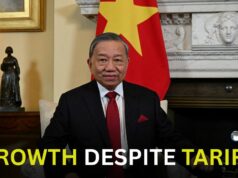NEW DELHI: How is China’s state-controlled media reflecting the victory of Joe Biden in the U.S. elections? With a mix of caution and hope, indicating the sentiment in China’s ruling establishment for a quick end to the turbulence triggered by the Trump administration. But as the leading English language paper China Daily observed in an opinion piece: “Given the repeated show of bipartisan unanimity when it comes to congressional legislative and policy initiatives involving China, few would be so optimistic as to anticipate an abrupt reversal in US China policies. That kind of congressional consensus is an unmistakable sign that there are serious differences between the two countries”.
The paper says that improving China ties may not be a policy option for U.S. politicians of either party at this point … but managing it should be a prime concern. The question then is where to start: reviving trade talks is critical to restore some understanding and trust. It is notable that neither Beijing nor Washington has ventured to scrap the hard-earned so called phase one deal they negotiated.
China scholar Keith Lamb noted in a commentary in the same paper that the two sides must move towards some kind of dialogue. He quotes Vice Foreign Minister Le Yucheng at a press briefing on November 5 that “it is hoped the incoming U.S. administration will meet China half way, adhere to the principle of no conflict no confrontation, mutual respect and win win cooperation …”
Lamb also suspects that Biden’s “get tough” on China are merely playing to the “braying mob” that characterizes the pantomime-like quality of U.S. elections. Biden will no doubt be less capricious than Trump, he writes but China must still be wary … “we can’t forget Biden under Obama started the “US pivot to Asia’ that seeks to contain China. It continues to this day with the Indo-Pacific strategy that seeks to pit India against China.”
Global Times, sometimes characterised as the rottweiler of the Chinese media, was more blunt about Biden. “He will maintain a tough attitude on China. On what the U.S. defines as “human rights” issues, such as the Xinjiang and Hong Kong affairs, the possibility cannot be excluded that a Democratic government could go even further. In short, the US is unlikely to ease the pressure on China on key issues.”
Global Times notes that the Trump administration has on many occasions deliberately exerted pressure on China … it believed the tougher it was on China and the more it tried to pass the buck to China for the U.S. failure to contain the coronavirus pandemic, the more votes it would win. Therefore bubbles have appeared in US China policy … “we believe it is possible to pop those bubbles. Beijing should undertake to communicate with the Biden team as thoroughly as it can, making efforts to recover US China relations to a state of great predictability.”
Summing up, Global Times says it will be possible for China and the U.S. to shift from fierce confrontation to pragmatic cooperation to fight the pandemic. But in terms of economy and trade, Biden is highly likely to continue Trump’s “maximum pressure” campaign.
Biden will pay more attention to consolidating trans-Atlantic relations but this alliance was not built on China. If Washington wants to exploit its alliance system to deal with China, it is bound to be restrained by its allies.
Therefore, China must become a country the U.S. cannot suppress or destabilise and make it that cooperation with China is the best option for the U.S. to realise its national interest.
Thirty eight years in journalism, widely travelled, history buff with a preference for Old Monk Rum. Current interest/focus spans China, Technology and Trade. Recent reads: Steven Colls Directorate S and Alexander Frater's Chasing the Monsoon. Netflix/Prime video junkie. Loves animal videos on Facebook. Reluctant tweeter.





